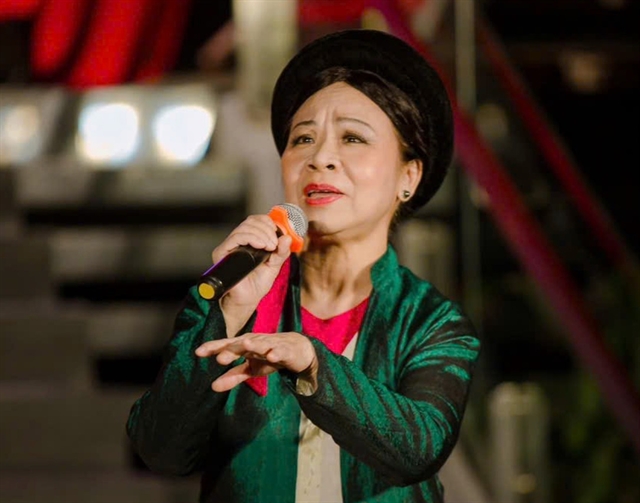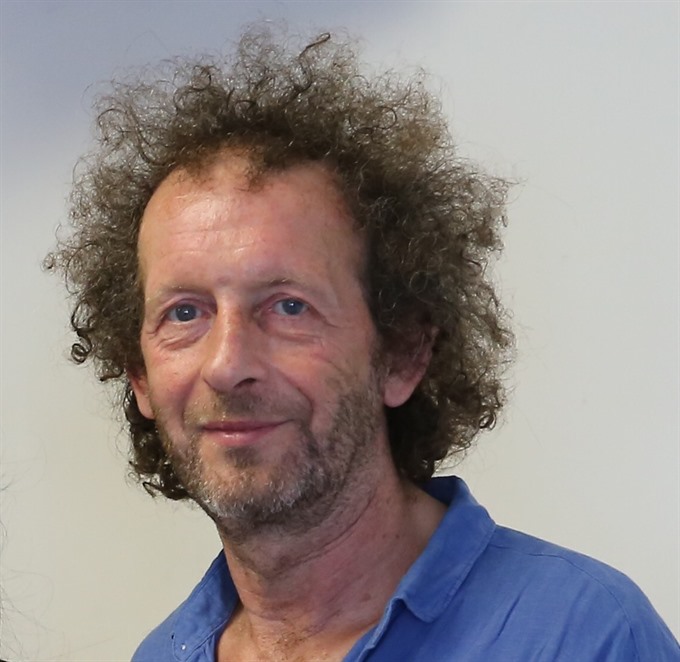 Inner Sanctum
Inner Sanctum

Oscar-nominated French screenwriter and film director Olivier Lorelle was in Việt Nam this week for the premiere of his film Ciel Rouge (Red Sky). This is the fourth film made by a French director and entirely shot in Việt Nam.
 |
| Olivier Lorelle |
Oscar-nominated French screenwriter and film director Olivier Lorelle was in Việt Nam this week for the premiere of his film Ciel Rouge (Red Sky). This is the fourth film made by a French director and entirely shot in Việt Nam, following The Lover, Điện Biên Phủ and Indochina –which were presented to the public twenty years ago and won international acclaim.
He speaks with Vương Bạch Liên about the film and his career.
Inner Sanctum: Set in Indochina in 1946, the film tells the story of a French soldier who is forced to torture and kill a young Vietnamese woman who is fighting for national independence. Instead, he decides to flee with her on an unpredictable journey to the heart of the jungle.
Where did you get the idea for this film?
The idea came to me ten years ago, but I am a screenwriter and over those 10 years I only wrote for other films.
The starting point of my film Ciel Rouge (Red Sky), is the fascination of a man towards his enemy -- a woman who is very courageous. I need a battle, between two people from two cultures which are totally different. I need a war, not on the battlefield, but in a place where the soldier gets lost in a country which is swallowing him. The jungle attracted me.
And the film is a love story which begins with a soldier who is fascinated by the courage of his enemy. And I chose this Indochina War because it is the best war to make my film: French soldiers are lost in the country, in the jungle, and Việt Minh [resistance]soldiers are very courageous… And all around, there is the jungle which can be the décor, the background for the film.
What I want to convey to the public is not the images of war, but the message about the meaning of love: what is love, what love can bring to us in life. Does love really make one progress and give to the other what they didn’t have at the beginning?
Inner Sanctum: The film is shot in the jungles and mountainous areas of Việt Nam. Was it difficult to shoot the film in these locations?
Before shooting the film in 2015, I made two reconnaissance trips to Việt Nam in 2013 and 2014. Luckily, we got the support of Mathieu Ripka, a Frenchman who has deep knowledge about Việt Nam and who took part in the production of the film. He told us that it was possible to make the film in Việt Nam, and that we should not be worried about eventual difficulties.
In fact, many French films are made in Cambodia or in other Asian countries, but not in Việt Nam. Việt Nam has a reputation of being difficult for shooting because of complicated administrative procedures. But when we came here, we found it was great to work with the Vietnamese team. And we understand why you won the two wars... It’s true, I have to say it… People here work very efficiently, they are quick, and there were no problems about ego. And they are physically courageous.
We chose to shoot around Ba Bể Lake and Hà Giang’s remote communes, two magnificent regions that are not known in France. I hope that French people who come to see the film in France will want to discover those regions for themselves.
Inner Sanctum: I guess that the Indochina War may be a sensitive subject for the French people. Did you feel pressure when making this film?
It’s true that French people do not want to hear about the colonial wars. Those wars are always very delicate subjects.
Only three films in the history of French cinema have tackled the topic of the Indochina War (The 317th Platoon and Điện Biên Phủ by Pierre Schoendoerffer, and Indochine by Régis Wargnier). French people do not make films about the war. They have trouble showing political reality in cinema.
I found it difficult to get financing for Red Sky in France. Many French people couldn’t accept that there was a French man who opened fire on other French men. For them, it is not possible… But now as the film will soon be released in France, there is no political pressure about it.
Some years ago, I wrote the script for the film Hors-la-loi (Outside the Law) featuring the French colonial war in Algeria (nominated for Best Foreign Language Film at the 83rd Academy Awards).
Many people demonstrated in the street the day before the film was released. They said that it was an indictment against France, and that it was French funding for an anti-French film.
Recently, newly elected French President Macron said that the French people had orchestrated a crime against humanity with the war in Algeria.
And his statement raised a lot of anger among many French people. War is not an easy subject for the French people.
However, the Algeria War is still quite new while the Indochina War is already old. For me, making films to tell stories for the next generation is an important thing to do.
Inner Sanctum: You won international fame with several of your scripts, in particular for the Oscar-nominated Indigènes (Days of Glory) which won you the César award. But you were previously a Doctor of Philosophy. What motivated you to become a screenwriter, and then a director?
At the beginning, I wrote scripts for theatre. I also worked as a professor. And I wrote scripts for the cinema to earn money [laughs], to stop being a professor… It wasn’t a good reason. With the theatre, I did not earn money. And then writing for the big screen started to interest me.
Philosophy helped me a lot in this work as it is a very clear discipline. It helps me know what I really want to say in my film, what is the emotion linked to this idea.
And why did I become film director? Because I want to be able to tell my story in a more personal way. And because people often forget about the screenwriters [laughs].— VNS




